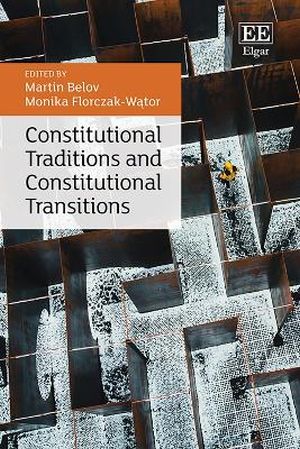
This comprehensive book offers conceptual, legal, and socio-legal insights into the relationship between constitutional traditions and constitutional transitions, as well as a comparative assessment of the two. It explores their impact on national constitutional orders and their implications for the multilevel constitutionalism of the EU.
Presenting extensive analysis of the role of constitutional traditions in the complex constitutional order of the EU, the book draws parallels between the conceptual arguments and the legal realist exploration of the judicial approach to constitutional traditions. Martin Belov and Monika Florczak-Wątor, along with their expert contributors, explore these transitory imaginaries as bridges between the constitutional past, present, and future, and expand on the fragility of arbitrary constitutional concepts in times of crisis and transition. The book addresses significant issues related to constitutional traditions and constitutional transitions in post-authoritarian societies by employing conceptual analysis, comparative research and case-studies.